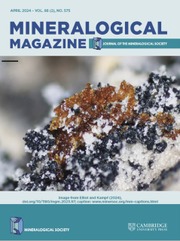Article contents
Geological repositories: scientific priorities and potential high-technology transfer from the space and physics sectors
Published online by Cambridge University Press: 02 January 2018
Abstract
The use of underground geological repositories, such as in radioactive waste disposal (RWD) and in carbon capture (widely known as Carbon Capture and Storage; CCS), constitutes a key environmental priority for the 21st century. Based on the identification of key scientificquestions relating to the geophysics, geochemistry and geobiology of geodisposal of wastes, this paper describes the possibility of technology transfer from high-technology areas of the space exploration sector, including astrobiology, planetary sciences, astronomy, and also particle and nuclearphysics, into geodisposal. Synergies exist between high technology used in the space sector and in the characterization of underground environments such as repositories, because of common objectives with respect to instrument miniaturization, low power requirements, durability under extremeconditions (in temperature and mechanical loads) and operation in remote or otherwise difficult to access environments.
Keywords
Information
- Type
- Research Article
- Information
- Creative Commons
- Copyright © The Mineralogical Society of Great Britain and Ireland 2015. This is an open access article, distributed under the terms of the Creative Commons Attribution (CC BY) license (http://creativecommons.org/licenses/by/4.0/), which permits unrestricted use, distribution, and reproduction in any medium, provided the original work is properly cited.
- Copyright
- Copyright © The Mineralogical Society of Great Britain and Ireland 2015
References
- 3
- Cited by

